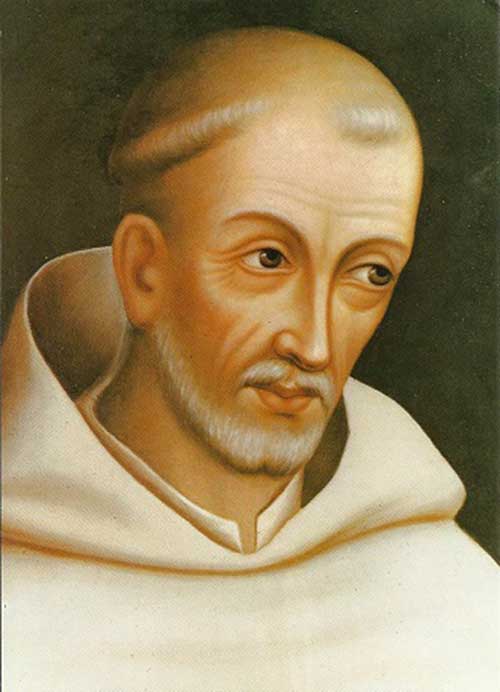
Tomorrow is the feast of St Bernard of Clairvaux. As an Associate of the Cistercian monastery, Kopua, this has particular significance for me (a Cistercian Associate is akin to a member of a Third Order or an Oblate in relation to other orders). What follows is from the Great Cloud of Witnesses (The Episcopal Church – you may find that link very useful), complementing from For All the Saints (you may find this link also very useful).
O God,
by whose grace your servant Bernard of Clairvaux,
kindled with the flame of your love,
became a burning and a shining light in your Church:
Grant that we also may be aflame with the spirit of love and discipline
and walk before you as children of light;
through Jesus Christ our Lord,
who lives and reigns with you and the Holy Spirit,
one God, now and for ever. Amen.
Bernard was the son of a knight and landowner who lived near Dijon, France. He was born in 1090 and given a secular education, but in 1113 he entered the Benedictine Abbey of Citeaux. His family was not pleased with his choice of a monastic life, but he nevertheless persuaded four of his brothers and about twenty-six of his friends to join him. After only three years, the abbot of Citeaux deployed Bernard and a small company of monks to establish a monastery at Clairvaux in 1115.
The work at Clairvaux, and the extreme rigors of the Benedictine rule practiced by the Cistercian community, were taxing. Tasked with much, Bernard denied himself sleep to the detriment of his health that he might have time to write letters and sermons. He preached so persuasively that sixty new abbeys were founded, all affiliated with Clairvaux. Famed for the ardor with which he preached love for God “without measure,” he fulfilled his own definition of a holy man: “seen to be good and charitable, holding back nothing for himself, but using his every gift for the common good.”
By 1140, his writings had made him one of the most influential figures in Christendom. His guidance was sought by prelates and princes, drawing him into active participation in all manner of controversy involving the Church, from settling disputes among secular rulers to sorting contentious theological debates. An ardent opponent of a growing movement of his time to reconcile inconsistencies of doctrine by reason, he felt that such an approach was a downgrading of the mysteries. This conflict took particular expression in his fierce opposition to the formidable theologian, Abelard.
When a former monk of Clairvaux was elected Pope Eugenius III, papal reliance upon Bernard grew. Commissioned by the Pope, Bernard preached the Crusade against the Albigensians and the Second Crusade to liberate Jerusalem, winning much support for the latter in 402 France and Germany. When that Crusade ended in disaster, Bernard was roundly attacked for having supported it. He died soon after in 1153.
Among Bernard’s writings are treatises on papal duty, on love, on the veneration of Mary, and a commentary on the Song of Songs. Among well known hymns, he is credited with having written “O sacred head sore wounded” (The Hymnal 1982, #168; #169), “Jesus, the very thought of thee” (#642) and “O Jesus, joy of loving hearts” (#649; #650).
[/et_pb_text][/et_pb_column]
[/et_pb_row]
[/et_pb_section]


